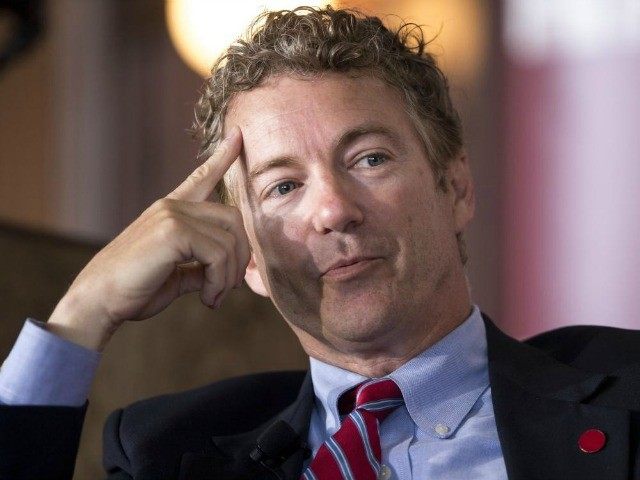Last week, as the final recount from the 2014 midterms was settled with another GOP pickup in the House, the 2016 nomination contest entered its formal pre-season.
Former Florida Gov. Jeb Bush announced that he was considering running for President. MoveOn.org released a petition urging MA Sen. Elizabeth Warren to run for the Democrat nomination. National Journal, the erudite chronicler of Washington, related the tale of KY Sen. Rand Paul’s attempts to make nice with the US Chamber of Commerce.
The article describes how Sen. Paul felt he had gone too far criticizing the US Chamber in a speech to conservative activists over the summer. Discussing the future of the Republican party, Paul had observed “a Chamber of Commerce Republican is not going to win a national election.”
According to the Journal, Paul and his aides reached out to the US Chamber to schedule a meeting with its President, Tom Donohue, to personally apologize for the quip. When a meeting couldn’t be scheduled, Paul reportedly reached out to one of his supporters with close Chamber ties to intercede on his behalf.
The Journal‘s tale ends on the happy note that Paul appeared in several late midterm campaign ads sponsored by the Chamber’s political arm. According to the article, the Chamber even extended its own good tidings, offering to feature Paul in Chamber ads in Iowa and New Hampshire, key early states in the 2016 nominating contest.
Setting aside the fact that the Journal’s story inhabits the DC-bubble idea of news, it is still odd. Paul’s quip about the Chamber is the classic DC gaffe (i.e. an inconvenient statement that is true). Earlier this year, both Reps. Jack Kingston and House Majority Leader Eric Cantor lost Republican primaries after being explicitly tied to the US Chamber. On a number of issues, from amnesty to reauthorization of the Export-Import Bank, the US Chamber has found itself on the other side of the party’s activist base. A “Chamber of Commerce Republican” will have a hard time winning a GOP primary, never mind a general election where the electorate has a more anti-business bent.
One lasting legacy of the Obama Administration has been its co-opting of the corporate community to its policy goals. Insurance and pharmaceutical companies are now committed partners to implementing ObamaCare. Even before ObamaCare was passed, the US Chamber and other large employees had partnered with labor unions to try to find “common ground” on universal health care. For lobbying groups like the Chamber, health care policy is an issue of labor costs, not market reforms or individual liberty.
The business lobbying community is entering an era of “corporatism,” where the largest companies have a firm hand in setting government policy and regulation. Rarely does the business community advocate market-wide reforms that benefit the entire economy, rather than special exemptions or carve outs that benefit existing companies and industries. If several wind energy companies became major backers of the Chamber, the organization would aggressively promote renewable energy and climate control legislation.
There isn’t anything nefarious about this. It is simply the proper function of any association, which is responsible for representing the interests of its members. It is simply the sad consequence of a government that grows exponentially every day. Corporations are today evolving into a partnership with government.
Unfortunately, according to the Journal story, we are further down that path than I feared. If Sen. Paul felt his observation about the Chamber was unfair, he should apologize to its representatives in his home state. The voters who elected him ought not have to seek Mr. Donohue’s forgiveness.

COMMENTS
Please let us know if you're having issues with commenting.